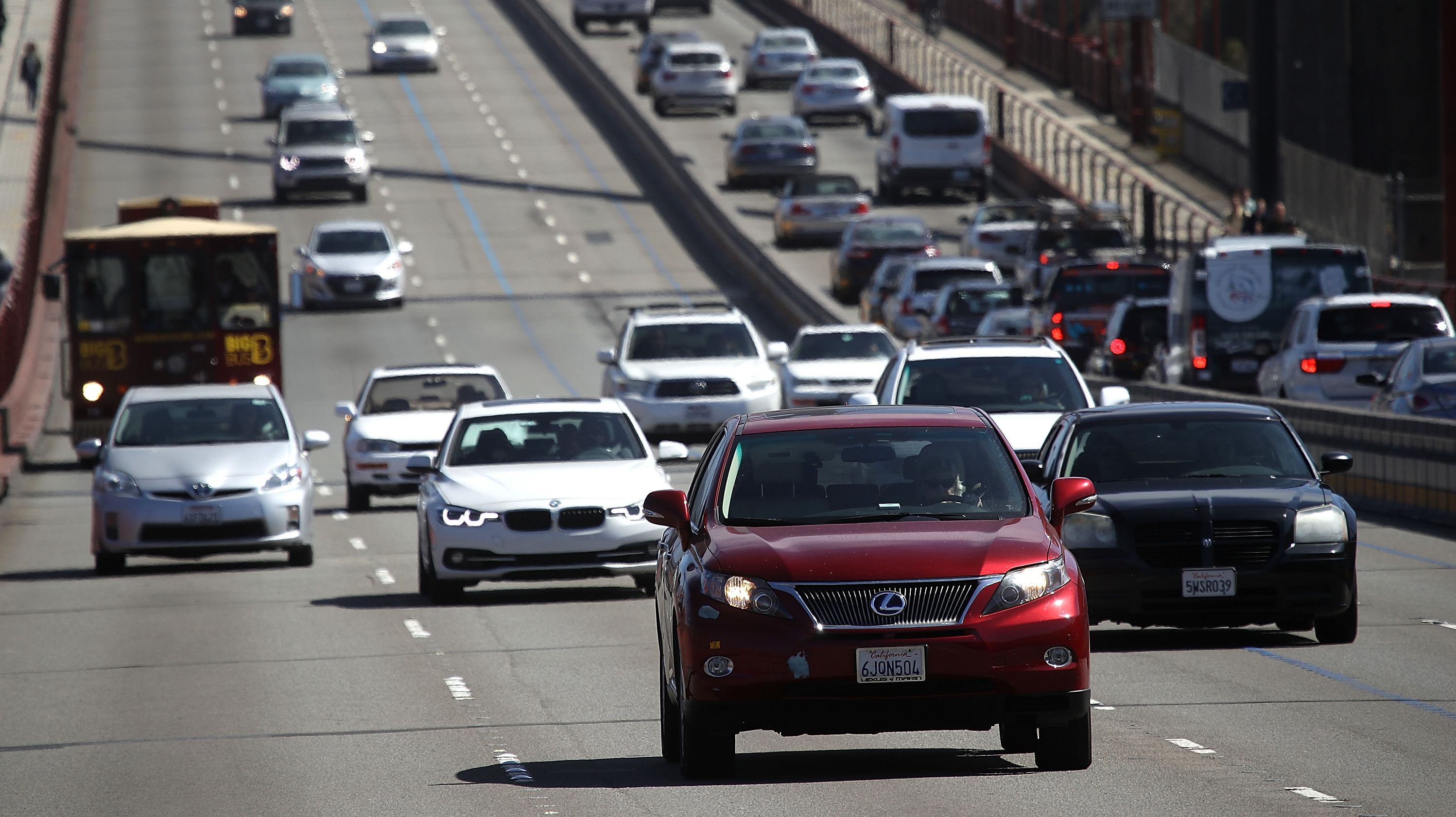Trump's Fuel Efficiency Standards Have Ignited A Legal Mess
The Trump administration finally rolled back Obama-era fuel efficiency standards in March even though it seemed like a stupid fight to pick in an industry that wasn't seriously asking for it. This was always going to be a mess, and now 23 states and several cities are suing the administration over it.
The lawsuit, filed Wednesday, will likely eventually end up in the Supreme Court, as The New York Times notes. The suit contends the fuel efficiency rules are based on, well, a bunch of errors and logical leaps.
From The Wall Street Journal:
The states argue in their suit that the Trump administration relied on an error-prone analysis that included omissions to justify the rule change, particularly in asserting that the changes would save consumers money over time, according to some of the attorneys general involved. The suit also argues that the rule violates federal requirements to reduce air pollution and increase vehicle efficiency, they said.
Under the Trump standards, automakers' fleets will have to average 40 mpg, while the Obama-era standards would have had that number rising to 54 mpg by 2025.
The states involved are all pretty much who you might expect: blue states on the coasts, with a few midwestern states sprinkled in.
In filing the lawsuit, Attorney General Becerra is joined by the attorneys general of Colorado, Connecticut, Delaware, Hawaii, Illinois, Maine, Maryland, Massachusetts, Michigan, Minnesota, Nevada, New Jersey, New Mexico, New York, North Carolina, Oregon, Pennsylvania, Rhode Island, Vermont, Virginia, Washington, Wisconsin, and the District of Columbia. The California Air Resources Board, the Cities of Los Angeles, New York, San Francisco, and Denver, and the Counties of San Francisco and Denver also joined the coalition in filing the lawsuit.
Whether the suit or not will be successful is still to be seen of course, but one of the enduring stats about the Trump administration I'll probably never forget is one from The Atlantic's deep dive on the fuel efficiency fight from February.
After the final version of SAFE is published, it will go to the courts. Its odds of survival are unclear. Historically, regulatory agencies win about 70 percent of their court challenges, Lienke said. Yet under the Trump administration, agencies have lost more than 90 percent of their cases, according to an ongoing tally from the Institute for Policy Integrity.
Many of those losses came in cases like this one, in which agencies published false, misleading, or fundamentally erroneous explanations of their own rules. In June, the Supreme Court held that the Trump administration could not add a citizenship question to the 2020 census, because the Department of Commerce's internal motivations did not match its publicly stated reasoning.
Anyway, the funniest part about all of this is Ford's statement from today.
.@Ford statement on CAFE litigation pic.twitter.com/dNURCLzsPA
— David Shepardson (@davidshepardson) May 27, 2020
Ford would like to clarify that it has nothing to do with this even though no one seems to be saying that they do, so please don't be mad.
You can view a copy of the lawsuit here.
